Michigan Party Stores are a Huge Vibe
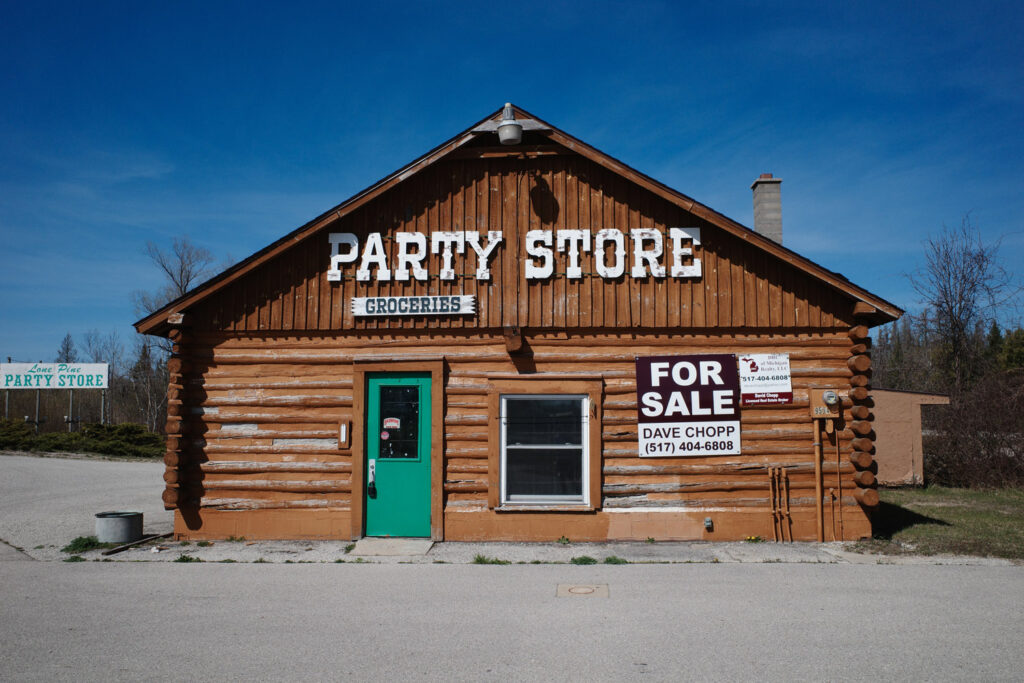
Michigan’s best public art exhibition isn’t happening in a museum. It’s on the road, the long forlorn country highways dotting the state all the way from Detroit to up north and back again. The party stores! Most of them are abandoned, existing now as little more than sculptural objects, buildings as art forms, monuments to the vibes and aesthetics of an older Michigan.
About the party stores—don’t confuse them with Party City, a national chain for cheap plastic plates, halloween costumes and balloons. A friend from out of state did this, telling his kids, “Hey let’s go to the party store!” Thinking he’d get them some balloons or some such thing. Imagine his shock when he showed up and it was anything but that… they’re convenience stores, liquor stores, stores for real party supplies, not novelty party goods.
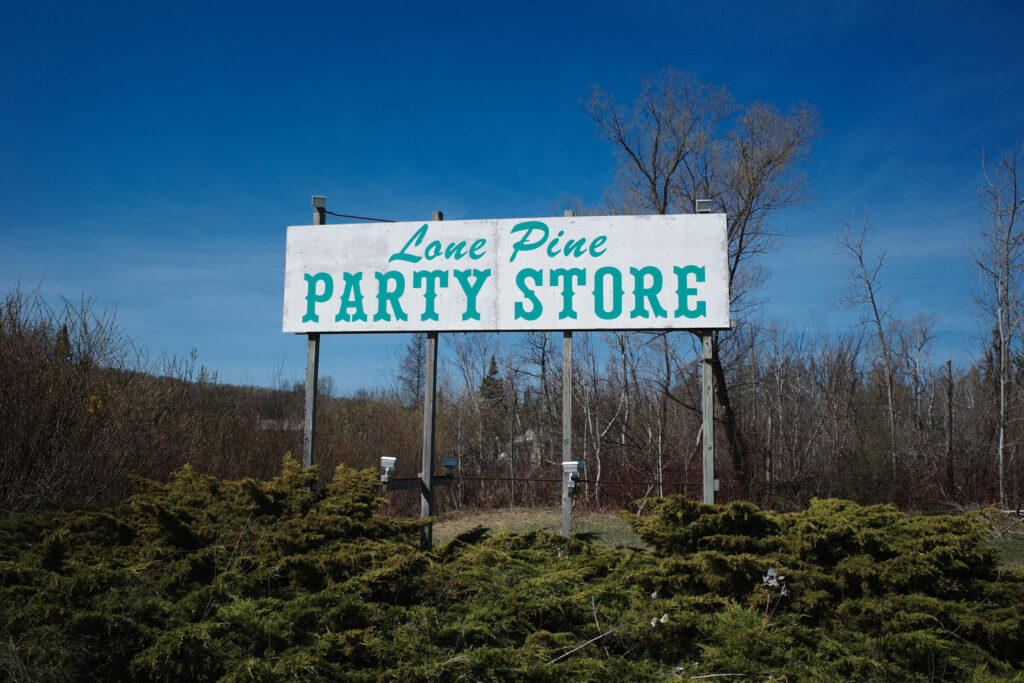
Party Store is a unique piece of Michigan slang. The term says it all, really. It’s a store where you go for party supplies, cheap beer, liquor, salty snacks. Bodegas in NYC. 7-Eleven, but not a chain. Individually owned and operated, each with their distinct character. Stopped by a still-running one outside of Traverse City and they had the Vernors Ginger Ale I was craving and a better selection of Haribo gummies than I’d seen anywhere else in the state, along with fishing poles, lures, and bottles of whiskey behind the counter. Everything a growing boy needs for a day out on the lake.
They’re still vibrant, even as empty buildings. Catch your eye every time. The best art reminds us of the deeper truths about ourselves, and the party stores beckoned. Something lost, yet something found—something old, perhaps something new.
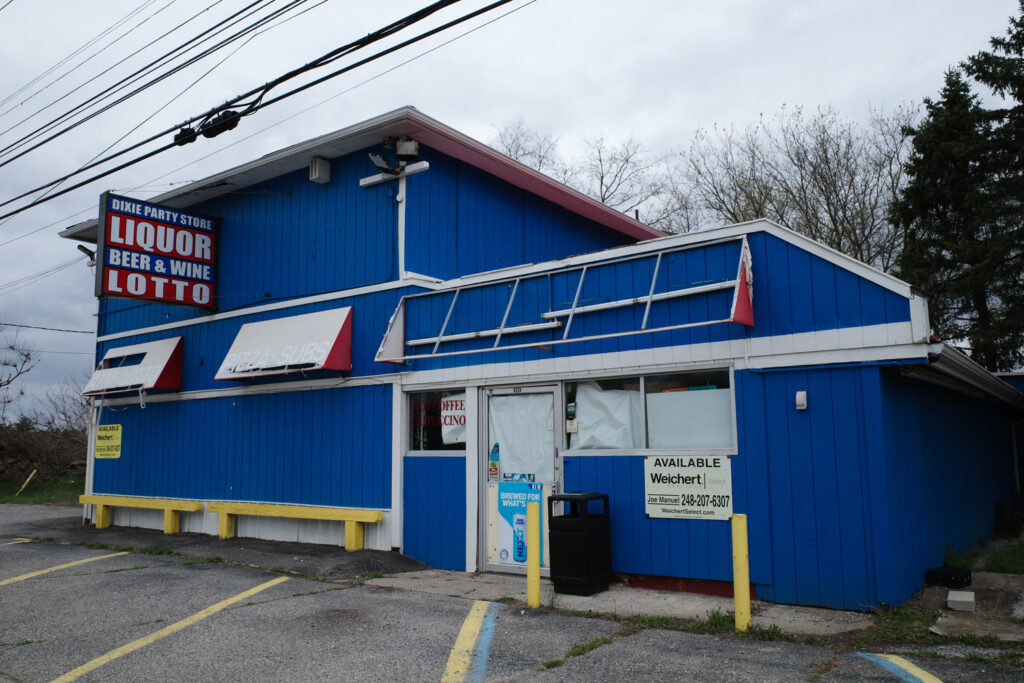
They litter Michigan country highways. Their bright colors, neon signs with crazy fonts contrasted with shuttered windows, for-sale signs, worn down gravel driveways. Primary colors—red, blue, and green—bold eye-catching patterns. Empty windows, no light inside, vacant and empty. The party stores are dead. Long live the party stores.
Sure, a few survive, still selling their wares. The last bulwarks of a local, small business culture, stemming the tide against the hegemonic horde. Cultural sameness, Chinese plastic, the internet, global monoculture, all forcing everything into the same gray box. Literally, in the case of the new strip malls that litter the landscape. You could be in Michigan, Ohio, California, wherever; it doesn’t matter, it all looks the same. The products are the same, everywhere has become nowhere.
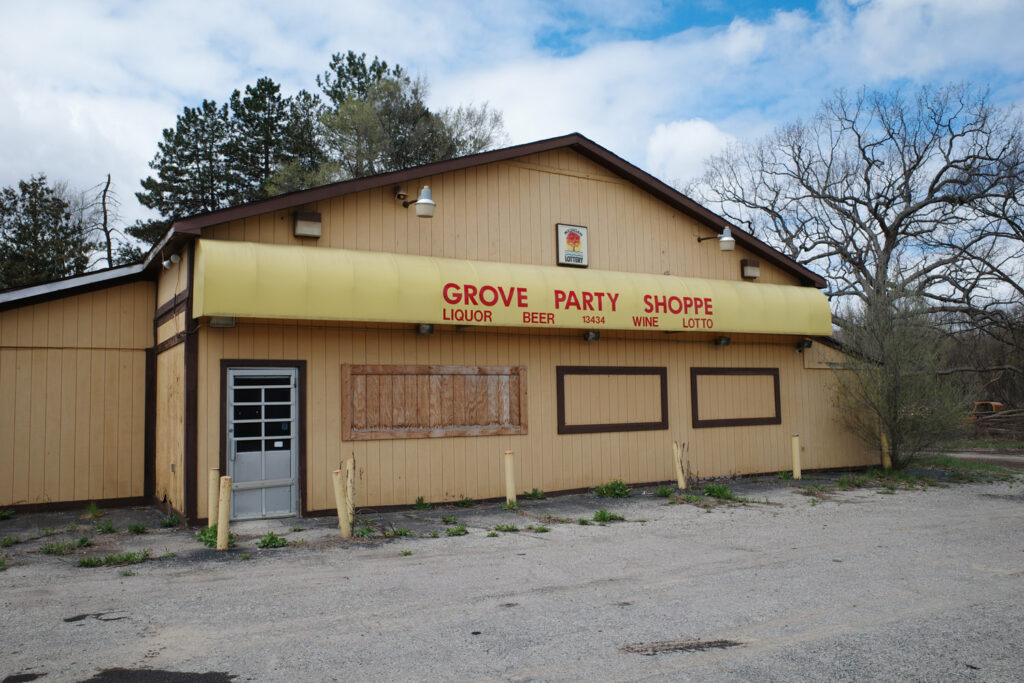
Party stores stand defiant. An aesthetic and linguistic placement in one specific locale—Michigan. Party stores are not from China. They’re not owned by a New York REIT. They may be dead or dying, but they’re ours. Even as empty husks, they’re beautiful, they have something to say.
Proclaiming defunct party stores as public art is some “art school shit,” I’ll admit that. A hip ‘70s movement called “new topographics” was all about photographs of the new landscape—industrial parks and suburbs and the like, sublimating their aesthetics into art. Any landscape is valid, any building is valid; it’s all about how you frame it, man. But party stores don’t have to be art to be rad. There’s nothing ironic about loving them. Their plainness need not be elevated, because they’re not plain. They’re colorful bits of culture—valid in themselves. Better than the socialist neorealist sculptures you see at the rest stop right before you get up north, that’s for sure.
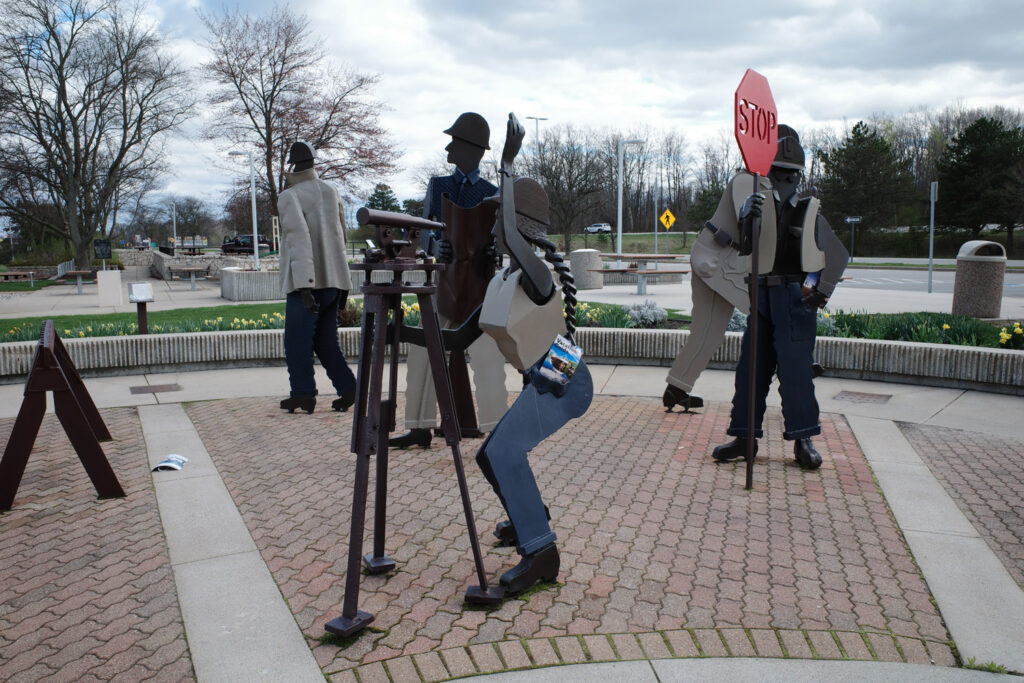
Relics of a lost time. Nostalgia, but more than that. Something simple, intentional, active. No globalized irony poisoned consumer culture, no leeching off this system that constantly denies our uniqueness. Just a brightly colored storefront selling vices the old fashioned way. Cigs, lotto tickets, and booze. Soda pop for the kids. Stop on by. Your teeth may rot, but at least it’ll be from the Faygo Rock & Rye, a real Michigan treat. Odes to a Michigan gone by, and that’s great art.
Bobby Mars is an artist, alter ego, and former art professor. Follow him on X at @bobby_on_mars.